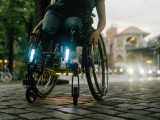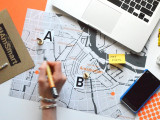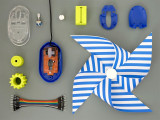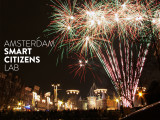Facebook Farewell (again)
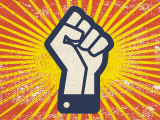
Openbare vergadering van de Facebook Liberation Army maandag 16 april 20.00 uur in De Waag, Amsterdam.
Facebook Liberation Army is verheugd dat de beweging om Facebook te verlaten publieke aandacht heeft gekregen. Na de Cambridge Analytica onthullingen van whistleblower Chris Wylie komt #deletefacebook goed op gang. In Nederland zet de lancering van byebyefacebook.nl door Zondag met Lubach de stroomversnelling in gang.
De eerste Facebook Farewell Party vond plaats in 2015. Op initiatief van Waag en Institute of Network Cultures werd een vreugdevol afscheidsfeest georganiseerd in de Stadsschouwburg. De argumenten om Facebook vaarwel te zeggen waren toen ook al overweldigend, van privacyoverwegingen en verslavingsverschijnselen tot de vercommercialisering van vriendschap.
De vraag toen en nu is:
"Wat is het alternatief?"
Op 16 april zal deze vraag centraal staan. Wat is Mastodon en hoe werkt Signal? Bestaan Ello en Diaspora nog en hoe bevalt het daar? Wie staat er in de startblokken met een alternatief? Wat zijn de voorwaarden waar een sociaal platform aan moet voldoen? We zullen ook bespreken wat de beste manier is een Facebook-account te deleten. Niet iedereen kan zijn netwerk zomaar opgeven, heeft een eigen massamedium of marketingbudget om volgers te blijven informeren. Wat zijn de afwegingen voor personen en organisaties? Maar ook: hoe vertel ik het mijn familie en vrienden? Hebben we afkickklinieken nodig of is iedereen nu wel klaar met Facebook en is de betovering allang doorbroken?
Sluit je aan bij de Facebook Liberation Army en begin je eigen initiatief. Organiseer een meet-up of begin een Facebook Anonymous kring. Vaarwel zeggen tegen Facebook is een bevrijding, dat moet gevierd worden!
- Marleen Stikker
- Geert Lovink
Achtergrond
De Facebook Liberation Army campagne is een vervolg op de 'Unlike Us' conferenties van het Institute of Network Cultures (HvA lectoraat) en de Facebook Farewell Party die in april 2015 door o.a. Waag is georganiseerd in de Amsterdamse Stadsschouwburg.
Facebook Farewell Party (2015): fla.waag.org
